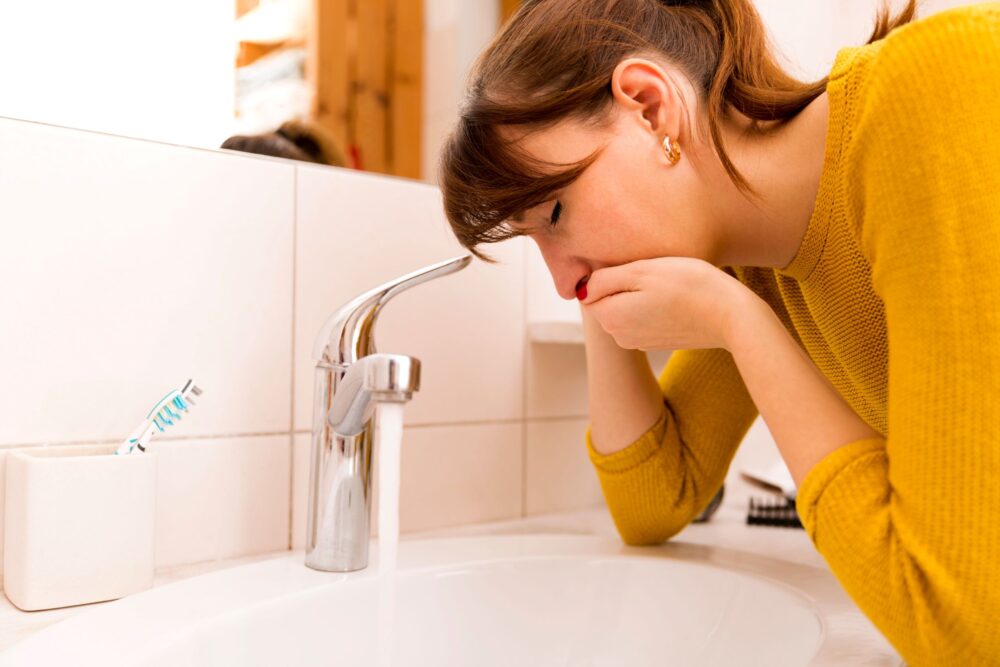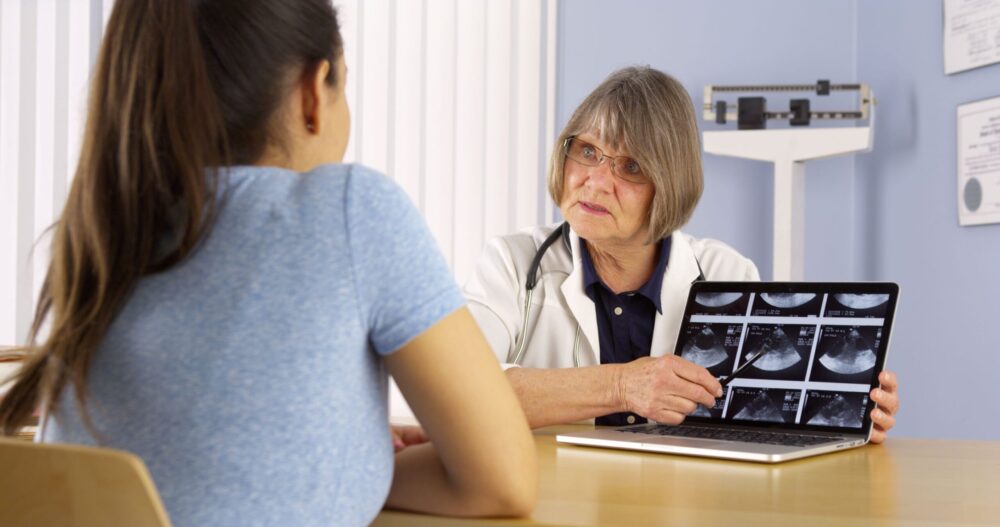9 Early Symptoms of Pregnancy: Get to Know Them
A period not showing up, morning sickness, appetite changes, and mood swings are obvious pregnancy symptoms you have known about for a long time. Suppose, however, one in every 2,500 of those expecting mothers doesn’t have any symptoms at all? Another possibility is that other early pregnancy symptoms are so vague that they may seem wholly unconnected.
As you are actively trying to get pregnant, you’ve stopped using birth control and have begun keeping tabs on your core temperature. Perhaps PMS is to blame. Maybe even a pregnancy sign.
There’s no way to find out if you are pregnant unless you take a pregnancy test at home, but these early signs, some of which may occur even before you have missed a period, may suggest you are.
Do you think you may be pregnant? If so, be aware of these signs of pregnancy in the early weeks.

Pregnancy Symptoms: When Do They First Appear?
The onset of early signs of pregnancy, such as breast tenderness and a heightened sense of smell, can occur before you miss your expected next period, while spotting occurs a week after the fertilized egg and sperm are united. Other symptoms like frequent urination usually show up shortly after conceiving.
The symptoms of early pregnancy, however, vary from person to person. In the early stages of pregnancy, it may take a few weeks before you notice other symptoms. Many women do not experience these symptoms until they are quite far into their pregnancy.
Early Pregnancy Symptoms You Should Be Aware Of
#1 Missed period
The most obvious pregnancy symptom and one that usually gives away the secret is missed periods. Although not everyone experiences this sign of pregnancy at the same time, most women see their periods stop about two weeks after fertilization.
If you have a 28-day cycle, your period should start on day 14. If you’ve been using contraception, your period may be delayed or skipped altogether. But if you’re not on any form of contraception, and your cycle has always been regular, then it’s time to do a pregnancy test. If it is a positive pregnancy test, congratulations! You’re pregnant and the symptoms of pregnancy will start to follow soon after – if not immediately.
This can happen as early as eight to 10 days after conception but it may take longer for some women to see their first missed period. Keep in mind that spotting between periods is normal during early pregnancy but if you miss two periods in a row and are experiencing other signs of pregnancy, visit your practitioner for an official diagnosis.
#2 Light bleeding
Having a light period may also indicate that you’re expecting. It’s not normal for you to experience a light flow, don’t disregard it. Some women experience mild bleeding while pregnant.
Women may suffer from bleeding during a first-trimester pregnancy. Placentas take over hormone production during this period.
#3 Early morning nausea or vomiting
Morning sickness is the most common pregnancy symptom you’ll hear about. It affects up to 75% of pregnant women in the first trimester and continues in some throughout the entire nine months.
Although it can be very uncomfortable, morning sickness is usually not dangerous to you or your baby. It’s caused by pregnancy hormones in your body and can be treated with over-the-counter medications like antihistamines, ginger ale, or crackers with peanut butter.
Understandably, you may be feeling anxious about your pregnancy, as well as any other issues that come with it. If you’re experiencing dizziness, try to avoid caffeine and eat more vegetables to help regulate your blood pressure.
#4 Food cravings
You might suddenly develop a craving for something you couldn’t care less about before. Or you may start to despise certain foods that were once your favourites.
While some women often report aversions to foods such as meat, eggs, and dairy products.
#5 Sleeplessness
You may feel more tired as the pregnancy progresses, but early on you may have trouble sleeping for no apparent reason at all.
#6 Sensitive breasts or nipples
Your breasts and nipples may be sore, tender or more sensitive than usual. This can happen even before your period is due.
#7 Cervical mucus changes
During pregnancy, your body produces more cervical mucus than usual because of changing hormone levels. This mucus can sometimes show up on your underwear or pantyhose as a clear or whitish discharge that resembles raw egg whites in texture and colour.
Cervical mucus is usually most noticeable right after ovulation when it helps sperm travel up to the uterus and fallopian tubes to fertilize an egg cell (ovum). It’s also noticeable when you’re most fertile during your cycle. But it isn’t always obvious, so don’t worry if you don’t see any discharge.
#8 Heightened sensitivity
Some women notice that their sense of smell intensifies during pregnancy. Since your sense of smell is closely linked to your sense of taste, you may have a heightened ability to taste foods and drinks.
These increased sensations may make some smells and taste more pleasant or unpleasant than they were before. You might notice that fragrances from your soaps, shampoos, or lotions make you feel nauseous.
#9 Frequent urination or increased thirst
This sign isn’t as common as some others but it does occur in some women during early pregnancy. When you’re pregnant, your body retains more water for the growing fetus which means there is an increase in fluid volume for your kidneys to process and excrete.
If you find yourself going to the bathroom a lot more often than usual, or if you’re always thirsty, it could be a sign that you’re carrying a baby. However, it could also be something else entirely so don’t panic if you notice this symptom.
Be sure to check with your doctor if the frequency of urination is accompanied by pain, burning or urgency in the lower back or abdomen.
When To See Your Doctor

If these symptoms continue for more than two weeks after your missed period, contact your practitioner immediately. Other symptoms not listed here can also be a sign of pregnancy, so don’t rule out the possibility until after a missed period has passed and you’ve taken a home test or visited the doctor for an exam and blood tests.
The earliest time a pregnancy test can detect a pregnancy is about 6 days after fertilization (conception). If you have had unprotected vaginal intercourse in the past several days and have not yet menstruated, you may wish to visit your doctor or local Planned Parenthood or other health clinics for a pregnancy test.
A positive result on a home pregnancy test does not necessarily mean that you are pregnant. You may have an early menstrual period that has not yet been detected by your body. Your doctor will perform blood and urine tests to confirm whether or not you are pregnant.
If you experience symptoms of early pregnancy (nausea, vomiting, fatigue), but do not have a positive home pregnancy test result and missed period, see your doctor for further evaluation. You may be experiencing signs of an early miscarriage or another health condition that requires medical attention.






